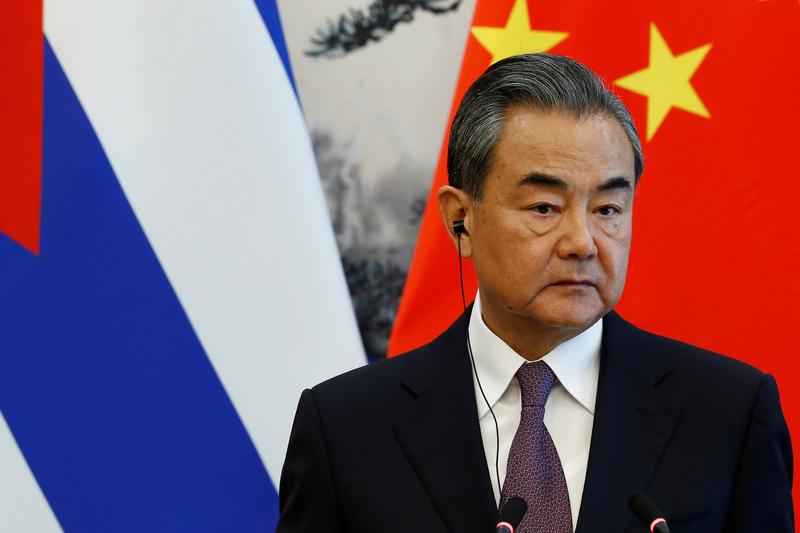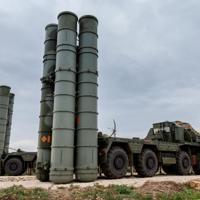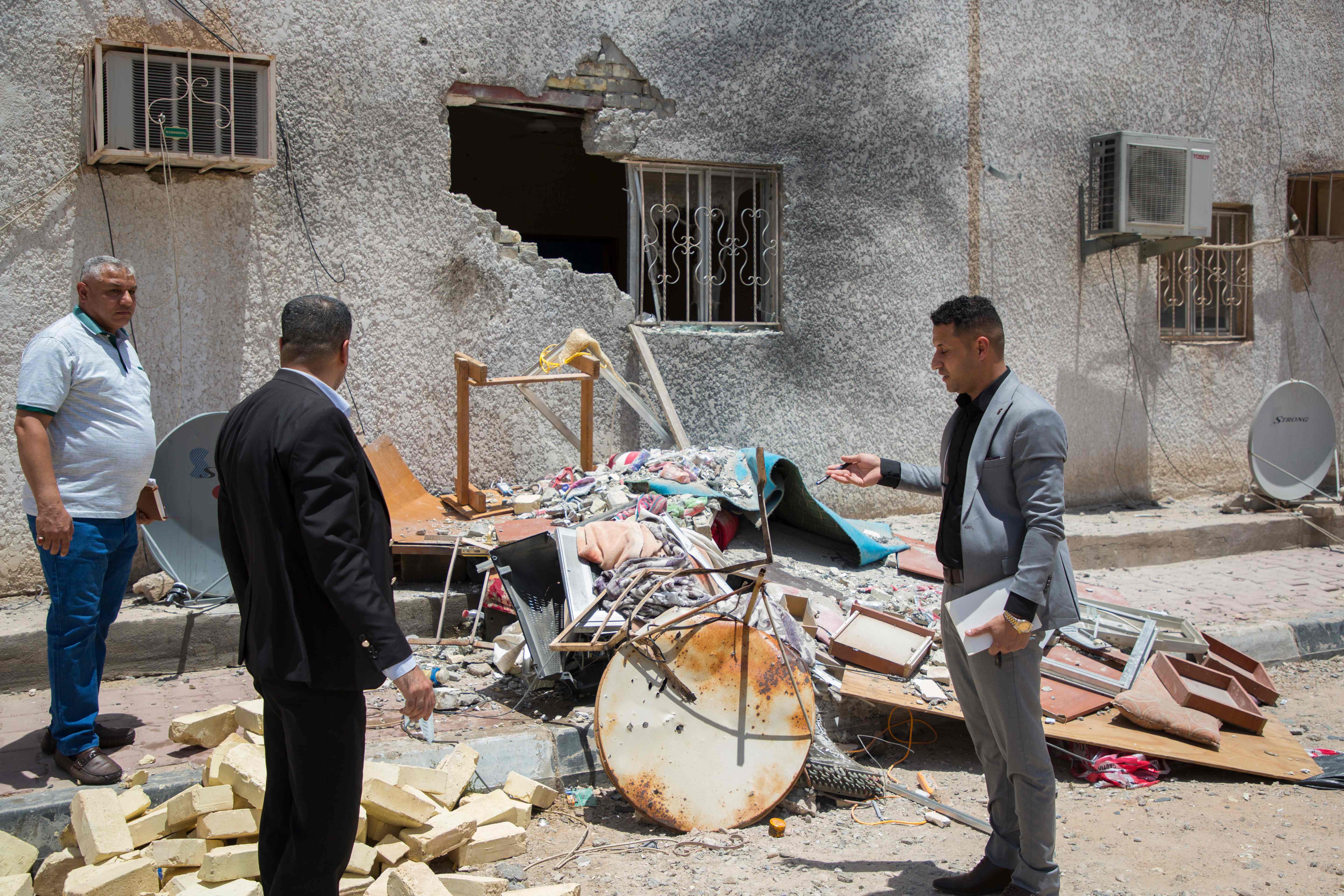Don't open 'Pandora's Box' in Middle East, China warns
Ben Blanchard
June 18, 2019
Updated 15 minutes ago
BEIJING (Reuters) - The Chinese government’s top diplomat warned on Tuesday that the world should not open a “Pandora’s Box” in the Middle East, as he denounced U.S. pressure on Iran and called on it not to drop out of a landmark nuclear deal.

FILE PHOTO: Chinese Foreign Minister Wang Yi attends a news conference with Cuban Foreign Minister Bruno Rodriguez (not pictured) at Diaoyutai state guesthouse in Beijing, China May 29, 2019. REUTERS/Florence Lo
Fears of a confrontation between Iran and the United States have mounted since last Thursday when two oil tankers were attacked in the Gulf of Oman.
The United States blamed Iran for the attacks, more than a year after President Donald Trump withdrew from a 2015 Iran nuclear deal.
Iran denied involvement in the tanker attacks and said on Monday it would soon breach limits on how much enriched uranium it can stockpile under the deal, which had sought to limit its nuclear capabilities.
Acting U.S. Defense Secretary Patrick Shanahan announced on the same day the deployment of about 1,000 more troops to the Middle East for what he said were defensive purposes, citing concerns about a threat from Iran.
Speaking in Beijing after meeting Syria’s foreign minister, Chinese State Councillor Wang Yi said the United States should not use “extreme pressure” to resolve issues with Iran.
Wang told reporters that China was “of course, very concerned” about the situation in the Gulf and with Iran, and called on all sides to ease tension and not head towards a clash.
“We call on all sides to remain rational and exercise restraint, and not take any escalatory actions that irritate regional tensions, and not open a Pandora’s box,” Wang said.
“In particular, the U.S. side should alter its extreme pressure methods,” Wang said.
“Any unilateral behavior has no basis in international law. Not only will it not resolve the problem, it will only create an even greater crisis.”
Wang also said that the Iran nuclear deal was the only feasible way to resolve its nuclear issue, and he urged Iran to be prudent.
“We understand that relevant parties may have different concerns but first of all the comprehensive nuclear deal should be properly implemented,” he added. “We hope that Iran is cautious with its decision-making and not lightly abandon this agreement.”
At the same time, China hopes other parties respect Iran’s legitimate lawful rights and interests, Wang said.
China and Iran have close energy ties, and China has been angered by U.S. threats against countries and companies that violate U.S. sanctions by importing Iranian oil, including Chinese firms.
China has had to walk a fine line as it has also been cultivating relations with Iran’s regional rival, Saudi Arabia, the Asian giant’s top oil supplier.
Iran’s foreign minister has visited China twice this year already. Saudi Arabia’s crown prince has also visited Beijing this year.
Reporting by Ben Blanchard; Writing by Se Young Lee and Michael Martina; Editing by Clarence Fernandez, Robert Birsel

 www.reuters.com
www.reuters.com
Ben Blanchard
June 18, 2019
Updated 15 minutes ago
BEIJING (Reuters) - The Chinese government’s top diplomat warned on Tuesday that the world should not open a “Pandora’s Box” in the Middle East, as he denounced U.S. pressure on Iran and called on it not to drop out of a landmark nuclear deal.
FILE PHOTO: Chinese Foreign Minister Wang Yi attends a news conference with Cuban Foreign Minister Bruno Rodriguez (not pictured) at Diaoyutai state guesthouse in Beijing, China May 29, 2019. REUTERS/Florence Lo
Fears of a confrontation between Iran and the United States have mounted since last Thursday when two oil tankers were attacked in the Gulf of Oman.
The United States blamed Iran for the attacks, more than a year after President Donald Trump withdrew from a 2015 Iran nuclear deal.
Iran denied involvement in the tanker attacks and said on Monday it would soon breach limits on how much enriched uranium it can stockpile under the deal, which had sought to limit its nuclear capabilities.
Acting U.S. Defense Secretary Patrick Shanahan announced on the same day the deployment of about 1,000 more troops to the Middle East for what he said were defensive purposes, citing concerns about a threat from Iran.
Speaking in Beijing after meeting Syria’s foreign minister, Chinese State Councillor Wang Yi said the United States should not use “extreme pressure” to resolve issues with Iran.
Wang told reporters that China was “of course, very concerned” about the situation in the Gulf and with Iran, and called on all sides to ease tension and not head towards a clash.
“We call on all sides to remain rational and exercise restraint, and not take any escalatory actions that irritate regional tensions, and not open a Pandora’s box,” Wang said.
“In particular, the U.S. side should alter its extreme pressure methods,” Wang said.
“Any unilateral behavior has no basis in international law. Not only will it not resolve the problem, it will only create an even greater crisis.”
Wang also said that the Iran nuclear deal was the only feasible way to resolve its nuclear issue, and he urged Iran to be prudent.
“We understand that relevant parties may have different concerns but first of all the comprehensive nuclear deal should be properly implemented,” he added. “We hope that Iran is cautious with its decision-making and not lightly abandon this agreement.”
At the same time, China hopes other parties respect Iran’s legitimate lawful rights and interests, Wang said.
China and Iran have close energy ties, and China has been angered by U.S. threats against countries and companies that violate U.S. sanctions by importing Iranian oil, including Chinese firms.
China has had to walk a fine line as it has also been cultivating relations with Iran’s regional rival, Saudi Arabia, the Asian giant’s top oil supplier.
Iran’s foreign minister has visited China twice this year already. Saudi Arabia’s crown prince has also visited Beijing this year.
Reporting by Ben Blanchard; Writing by Se Young Lee and Michael Martina; Editing by Clarence Fernandez, Robert Birsel
Don't open 'Pandora's Box' in Middle East, China warns
The Chinese government's top diplomat warned on Tuesday that the world should not open a "Pandora's Box" in the Middle East, as he denounced U.S. pressure on Iran and called on it not to drop out of a landmark nuclear deal.








